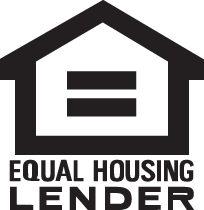COVID-19 Emergency Rent Assistance Program (ERAP) for Landlords
As the federal eviction moratorium is set to expire, New York state will receive more than one billion dollars in emergency rental assistance, as part of the American Rescue Plan Act of 2021.
Locally Monroe County and the city of Rochester received almost $22 million dollars and Providence Housing will distribute $3 million of those dollars to assist landlords with rental arrears as part of the Emergency Rent Assistance Program (ERAP). With the permission of their tenants, landlords may apply for dollars on behalf of their tenants.
Basic Eligibility:
Income qualifications:
• Tenant’s 2020 annual income must be at 80% AMI or below OR
• Tenant’s current monthly income must be at 80% AMI or below
• *NEW* Tenant’s income is over 80% AMI (80-120%) – apply for new program at https://otda.ny.gov/programs/emergency-rental-assistance/
• *NEW* Landlord programs for situations where tenant has already moved, or won’t cooperate with the application – apply for new program at https://otda.ny.gov/programs/emergency-rental-assistance/
COVID-19 impacted:
• Tenant had a reduction in household income, incurred significant costs, or experienced another financial hardship due, directly or indirectly, to the COVID-19 outbreak
Risk of homelessness or housing instability (any of the following):
• Tenant has a past-due utility bill, past-due rent notice, or eviction notice
• Tenant is living in unsafe or unhealthy housing conditions
• Tenant has any other evidence of homelessness or housing instability
Additional Eligibility:
• There are no active health and safety violation in the unit
Eligible Assistance:
• Up to 12 months of back rent, back to March 2020 (amount documented by Landlord)
• Up to three months of future rent if the household cannot afford ongoing rent (to qualify for future rent, the household must also qualify for at least one month of back rent)
HOW TO APPLY
Landlords interested in applying should email their request to [email protected]. Providence Housing will then forward you an application to complete with your tenant(s) and a list of required documents to return with the application. We will not be able to completely process an application until all of the paperwork is returned.
Due to the expected high volume of interest, we will be unable to respond to phone calls.
Please read the Round 2 funding requirements below before completing the application so you are aware of the changes and are willing to agree to them prior to submitting the application.
ROUND TWO CHANGES – SEE BELOW OR CLICK FOR A PRINTABLE PDF WHAT LANDLORDS NEED TO KNOW AS OF SEPTEMBER 2021
- If you apply for Rental Arrears funding and your tenant is found eligible, you both will be required to sign a Rental Arrears Agreement (RRA) to receive funding. The RAA highlights are below.
- The primary purpose of this program is to prevent evictions.
- These rules are based on US Treasury regulations and NYS law.
- As a condition of receiving payment the landlord must:
- Forgive all other outstanding punitive fees (late fees, attorney fees).
- Withdraw or dismiss any current eviction proceeding.
- Agree to a payment plan for any remaining rent arrears and to work with the tenant to apply for other funding to satisfy the outstanding arrears.
- Agree to not file a new eviction for non-payment or expired lease for 90 days after the last date covered by the rental assistance.
- Agree to not file a new eviction for expired lease for 12 months from the date of payment (may evict for non-payment beginning in 4th month).
- Agree to not raise the monthly rent cost for 12 months from the time of payment.
- If the application is eligible and is approved for funding, we will notify you and the tenant in writing that the application is conditionally approved, pending the signing of the Rental Arrears Agreement. We will work with landlord and tenant to sign the RAA.
- If the landlord signing the RAA isn’t the property owner, the landlord needs to supply a Management Agreement, Power of Attorney, or similar document designating them as the property manager with the power to collect money and/or issue leases on behalf of the owner.
- If either party refuses to sign the RAA agreement, the case cannot be paid. The payment cannot be made unless landlord and tenant come to an agreement.
- You may still evict the tenant for non-payment 90 days after receipt of program payment (or after the period of future rent ends, if applicable). You may still evict the tenant immediately or at any time for criminal activity, destruction to the unit, and other lease violations.
If you have questions or concerns about the new law please see the below webpage or speak with your NYS Senator or Assembly Member.
- The property must be free of Health and Safety Violations. If it has Violations, landlords have 30 days to resolve those violations.
- As of 09/17/21, new applications no longer qualify if it is a new episode of need.
- Future months will no longer be paid.
- An application can be eligible if the tenant, or someone in the household has qualified for unemployment benefits since March 2020 AND/OR experienced a reduction in household income, or incurred significant costs (increased expenses), or experienced other financial hardship during or due, directly, or indirectly to the novel coronavirus. An applicant can have quit their job for reasons other than COVID during the pandemic, and now qualify with reduced income.
- If a tenant is no longer living at the residence, they would not qualify for this program.
There are now programs:
- Serving tenants who have income over 80% AMI (80-120%)
- Serving landlords where tenant has already moved, or won’t cooperate with application
Both will be applied for here: https://otda.ny.gov/programs/emergency-rental-assistance/
The Landlord will need to fully complete the emergency assistance application (do not leave anything blank). If it doesn’t apply, mark NA. If it asks for an amount, put an amount – even if that amount is zero. Landlords and Landlords/tenants will have 10 days to submit the documents need for the application. Application and documents should be emailed to [email protected]. In the subject, please put the tenants first initial and last name. If Providence staff have provided you with a Workflow Number, please include that as well. If you are unable to complete the application by email, please let us know and we will work with you on an alternative.
- Documenting your tenant(s) Emergency:
- A letter or statement from the landlord or notice from the court which may include any one of the following documents:
- Past due rent notice from the landlord
- 14-Day pay or quit notice
- A court-ordered eviction petition or notice
- A Marshall’s notice
- Notice to vacate
- Proof of residence (landlord statement, lease, utility bill, etc.)
- Proof of arrears/back rent owed (e.g., landlord ledger). The rental amount should match the amount on the lease or lease addendum. Late fees, pet fees, lock out fees, etc will not be counted.
- Documenting the Family/Household:
- Age 18 and up: State-issued photo ID
- All household members: full name, date of birth, social security number
- Documenting tenant(s) Income – one or more of the following are required to establish household income for past 30 days, or your 2020 annual income:
- Paystubs
- If starting a new job, an offer letter on company letterhead with the start date, rate, and hours worked per week
- Unemployment benefit denial or receiving benefits documentation
- DSS budget letter
- Social Security correspondence
- 2020 tax filing
- Other documentation, as needed, to understand household’s current income
- Documenting tenant(s) Expenses:
- Copy of signed lease.
- Verification of monthly rent costs and rental arrears (copy of rent ledger and complete page 12 ledger in the application).
- Verification of increase expenses or decreased income.
- Verification of all earned and unearned income for household adults over 18.
- Verification of all unearned income for household members under 18.
- In some cases, case managers may need additional documentation
- Additional required documents:
- Landlord Authorization/Consent – allows case manager to contact landlord, and vice-versa. This can be found on the last page of the application.
- W-9 tax form completed by the Landlord
- If a landlord is refusing payment from the program, not fixing health and safety issues, or other extreme circumstances, the agency will issue a letter to the tenant and landlord stating that arrears can’t be paid for the current unit and the tenant will be relocated. The case will be transferred to DHS to handle. DHS has an existing team with the experience/infrastructure for handling relocations. EPPI 2.0 funds will be used for temporary hotel, storage costs, moving costs, security deposit, and 3 months future rent. This is all eligible per the Treasury guidance. The tenant will be issued a “letter of intent” stating the amount they are qualified for, and that they can present to prospective landlords.



